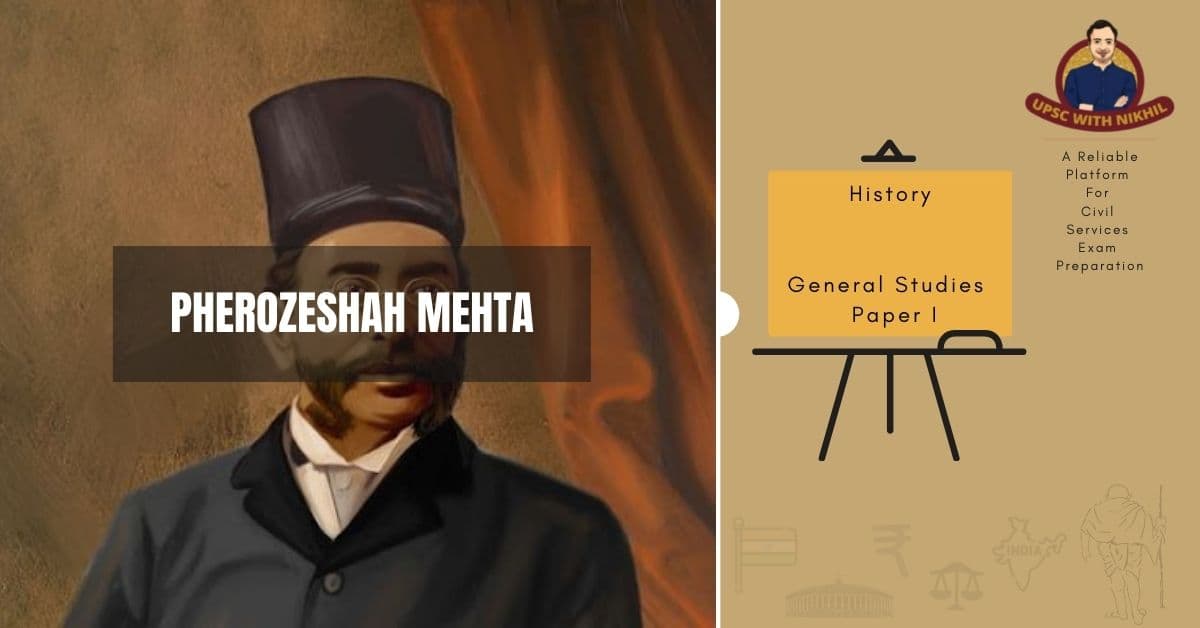Pherozeshah Mehta
Pherozeshah Mehta was dubbed "Bombay's Lion." He was born in Mumbai on August 4, 1845. In 1864, he became the first Parsi to receive a Master's degree from Elphinstone College. He was a driving force behind a number of municipal, social, and political reforms. He was a key figure in the administration of the municipality and was responsible for its new look. His connection to the university was much longer, and he had fought the Viceroy on numerous occasions over university reform issues.
FACTS ABOUT HIS LIFE
• Mehta was born in 1845 into a middle-class trader's family and attended Elphinstone College, where he graduated in 1964. The 'Lion of Bombay' and the 'Uncrowned King of Bombay' were his nicknames.
• Mehta went to Lincoln's Inn in London to study law and was called to the Bar in 1868.
• He returned to India, was admitted to the Bar, and quickly established a practise in a field dominated by British lawyers for many years.
• Mehta was the one who first raised the issue of the Bombay Municipal Government's need for reform. He went on to write the Bombay Municipal Act of 1872, earning him the title of "Father of Bombay Municipality."
• After quitting his law practise, Mehta would eventually enter politics.
• His friendships with people like Badruddin Taiyabji and Wyomesh Chandra Banerjee would later shape Indian nationalism's history.
• In addition, he was influenced by Gladstonian liberalism, which was popular in Britain at the time. Mehta's political career would allow him to put his liberal beliefs into practise.
• Mehta is widely regarded as one of the founders of the Indian National Congress and a leader of the moderate faction in Indian nationalism.

• He championed the interests of native Indians in both the Bombay and Imperial Legislative Councils, taking a liberal stance on issues.
• He then opposed the Arms Act and the Vernacular Press Act, while endorsing Ilbert Bill.
• He was also opposed to Lord Curzon's policy of putting universities under government control.
• He cited John Stuart Mill and Herbert Spencer in support of the introduction of elective principles in local bodies and de-centralisation of authority.
• The Ilbert Bill controversy (1883) was the final straw for Indian nationalists, who then formed the Indian National Congress.
• One of the early charges levelled by its critics was Congress's limited reach, which was best summed up by Lord Dufferin's phrase "microscopic minority."
• Tilak's political extremism, which demanded "poorna swaraj," posed a challenge to Mehta's advocacy of local self-governance and political moderation.
• Mehta founded a newspaper in 1910 that would go on to become famous.
• He published the Bombay Chronicle, which detailed the treatment of Indians in South Africa, prompting Gandhi to engage in a passive resistance movement there.
• When Gandhi arrived in India, Pherozeshah Mehta presided over a public meeting to welcome him on January 12, 1915. The newspaper was an important medium for expressing public opinion in India about the nationalist movement.
• The number of halls, roads, and law colleges named after Sir Pherozeshah Mehta demonstrates the extent of his influence.
• A good example is the Pherozeshah Mehta Bhavan and Research Centre at the University of Mumbai's Kalina Campus.
• During the inauguration ceremony of the aforementioned research centre, S M Krishna, the 19th Governor of Maharashtra from 2004 to 2008, paid glowing tribute to Mehta, saying that Mehta had always resisted the government's interference in university operations.
• Mehta was a founding member of the Indian National Congress and the president of the Bombay Presidency Association.


